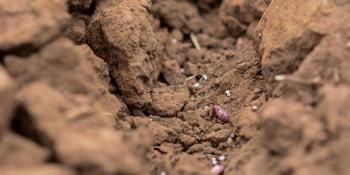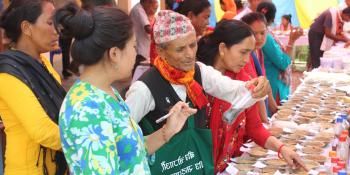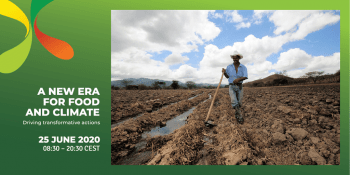Helping India lead the way in adapting smallholder farming to climate change
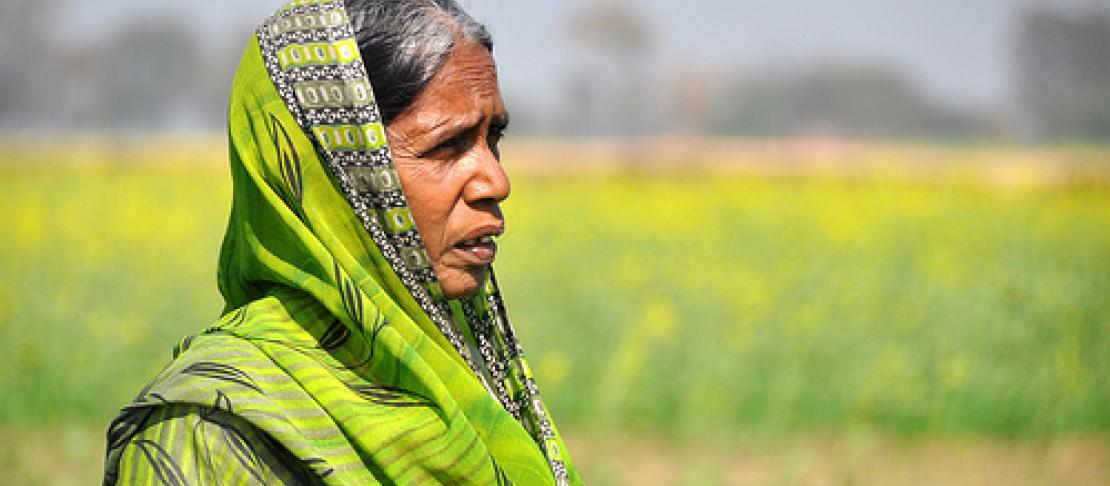
Gaby Kissinger reports from the International Conference on Climate Change, Sustainable Agriculture and Public Leadership in New Delhi, India, where she shared ideas to promote local, Indian national and international leadership in adapting smallholder farming to climate change.
India is already demonstrating tangible leadership in national, regional and local efforts to promote adaptation to climate change, particularly considering the vulnerability of smallholder producers. However, the UN Framework Convention on Climate Change processes still needs to define opportunities for mitigation and adaptation. How can India show international leadership in adapting smallholder farming to climate change while continuing the positive efforts at the local and national levels?
The International Conference on Climate Change, Sustainable Agriculture and Public Leadership (7-9 February 2012), brought together a range of people from national governments, and international and national research organisations to discuss these issues.
India demonstrated leadership on current food security issues
The event was hosted by the Indian Council of Agricultural Research (ICAR), in collaboration with the National Council for Climate Change and Sustainable Development (NCCSD), and the Government of India. Participating groups included the Planning Commission of India; CGIAR organizations such as the International Crops Research Institute for the Semi-Arid Tropics (ICRISAT), International Centre for Agricultural Research in the Dry Areas (ICARDA), and World Agroforestry Centre (ICRAF); and research entities including many universities and Vigyan Prasar, part of the Indian Department of Science and Technology.
The conference gathered 300 participants to share technical and practical expertise related to climate smart agriculture, including mitigation and adaptation strategies, with the intent of mobilizing tangible outcomes that promote food security, optimize conservation and productivity gains, while minimizing externalities.
To complement India’s leadership in this area, participants discussed the need for reforming traditional extension services to focus beyond crops and thereby include market information; the need for international agreement via the UNFCCC on a mechanism and financing for agricultural mitigation and adaptation; and assistance at all levels to promote the mainstreaming of climate resilient agriculture, among other issues. 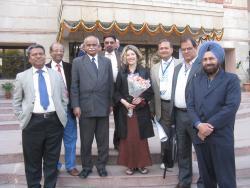
Adoption of an international charter - an important step in the right direction
Delegates adopted “The New Delhi Charter” which appeals to international funding communities, governments, academicians, and stakeholders to demonstrate leadership in defining solutions to agricultural mitigation and adaptation, from local to global levels. The Charter proposes vigorous development of:
- cross-sectoral policy and institutional frameworks that will support climate smart agriculture, including agroforestry, fishery and livestock-based farming approaches;
- early-warning systems for extreme weather or pest events, enhanced research and development in genetic improvement for crop stress tolerance, and guidance to inform wise use of biotechnology and other innovations;
- improved farming practices to reduce greenhouse gas emissions while building resilience to climate change impacts;
- dissemination of science research to practitioners while also recognizing the value of traditional and local knowledge, and
- market-based mechanisms to reward farmers for carbon reduction achievements.
The aim of the conference was to form a new consortium to bring existing entities together to develop an information platform, including best practices; provide focus for on-going advocacy regarding mitigation and adaptation strategies; and to promote leadership in India and beyond to tackle the present and emerging challenges posed by climate change and identify solutions.
Learn more about research activities in South Asia by the CGIAR Research Program on Climate Change, Agriculture and Food Security (CCAFS).
Learn more about our work on Pro-Poor Climate Change Mitigation.
Read more about India's approach to climate change and food security in this news article from The Hindu.
Gabrielle Kissinger is a principal at Lexeme Consulting. She most recently collaborated with the CCAFS program on the policy brief Linking forests and food production in the REDD+ context.
